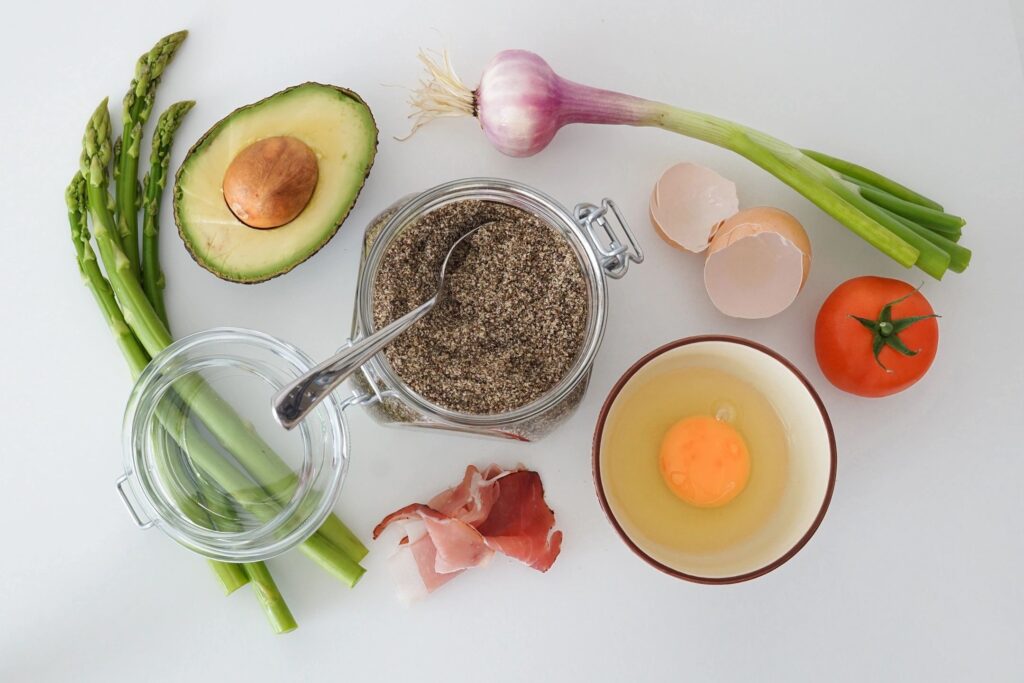Gout is a form of inflammatory arthritis characterized by sudden and severe pain, redness, and swelling in the joints. It is caused by an excess of uric acid in the blood, which can form sharp crystals in the joints, leading to intense inflammation and discomfort.

Eating a anti-inflammatory diet can help with preventing gout flares
CAUSES:
1. **Uric Acid Buildup**: Uric acid is a waste product formed from the breakdown of purines, substances found in certain foods and beverages. When the body produces too much uric acid or fails to excrete enough through the kidneys, it can accumulate in the bloodstream.
2. **Dietary Factors**: Foods high in purines, such as red meat, shellfish, sugary beverages, and alcohol (especially beer), can contribute to elevated uric acid levels.
3. **Genetic Predisposition**: A family history of gout can increase the likelihood of developing the condition.
4. **Medical Conditions**: Certain health issues, such as obesity, high blood pressure, diabetes, and kidney disease, can also raise the risk of gout.
SYMPTOMS:
– **Acute Attacks**: Gout typically presents with sudden and intense episodes of pain in the affected joint, often the big toe. The pain can be so severe that even the weight of a bed sheet can be unbearable.
– **Swelling and Redness**: The affected joint may become swollen, tender, and warm to the touch, with visible redness.
– **Duration**: An acute gout attack can last for several days to weeks and may resolve spontaneously.
DIAGNOSIS:
– **Clinical Evaluation**: Diagnosis is usually based on the patient’s symptoms and medical history.
– **Joint Aspiration**: A doctor may perform a procedure called arthrocentesis to withdraw fluid from the affected joint and examine it for urate crystals.
– **Blood Tests**: Measuring uric acid levels in the blood can help determine if hyperuricemia is present, although not all individuals with high uric acid levels develop gout.
TREATMENT:
1. Medications:
– **Nonsteroidal Anti-Inflammatory Drugs (NSAIDs)**: To relieve pain and reduce inflammation during acute attacks.
– **Colchicine**: A medication specifically used to treat gout flare-ups.
– **Corticosteroids**: May be prescribed if NSAIDs or colchicine are not effective or appropriate.
– **Uric Acid Lowering Medications**: Long-term management may involve medications such as allopurinol or febuxostat to lower uric acid levels and prevent future attacks.
2. Lifestyle Changes:
– **Dietary Modifications**: Reducing the intake of purine-rich foods, sugary drinks, and alcohol can help manage uric acid levels.
– **Hydration**: Drinking plenty of water can aid in flushing uric acid from the body.
– **Weight Management**: Maintaining a healthy weight can reduce the risk of gout attacks.
PREVENTION:
– Regular check-ups and monitoring of uric acid levels can help manage and prevent gout flares.
– Adopting a healthy lifestyle and diet plays a crucial role in long-term management.
In summary, gout is a painful form of arthritis caused by the accumulation of uric acid in the joints. Early diagnosis and effective management can help control symptoms and prevent future attacks, allowing individuals to lead a more comfortable life.